In December 2016, Secretary of State for Transport Chris Grayling announced the creation of a new shadow company that will eventually design, build and then operate the proposed East West line between Oxford and East Anglia (RAIL 815).
East West Rail (EWR) has a dual purpose: to accelerate reinstatement of the former Varsity Line that was closed in the 1960s, and to shift control of its delivery and operation away from the clutches of Network Rail.
Chosen to lead the organisation is career railwayman and former Chiltern Railways MD Rob Brighouse. He has been charged by Grayling to conduct a three month-long scoping exercise, and is due to report by the end of this month.
Brighouse has been asked to draw conclusions on how the pace of construction can be quickened, how costs can be reduced, and (most importantly) how much of the estimated £1 billion-plus price tag can be met through private finance.
He will also outline how the route might be operated in future by EWR as a single vertically integrated organisation, making it responsible for both track and trains.
This is a significant structural change in how Britain’s railways are run. It marks the end of Network Rail’s current monopoly as the UK’s only track authority, and places EWR firmly outside the England and Wales franchising system.
Grayling says he wants to do this not as a threat to NR or to divest it of power, but in order to bring about more quickly the recommendations made by the McNulty Report in 2011 and then the Shaw Report in 2016. Both reports strongly advocated greater devolution, cost control and the introduction of private capital as the best ways to improve the running of NR, making it far more financially disciplined and responsive to its customers.
Some progress has already been made in these areas. NR’s Route MDs have been granted extra autonomy, and the organisation is increasingly embedding itself within alliances alongside key contractors to more effectively deliver individual enhancements - for example, the Wessex improvement programme.
Integrated operating teams are also due to be introduced to the new East Midlands and Southeastern franchises when they commence next year, in order to generate greater alignment between track and train operations and thus incentivise all parties to more frequently put passengers first in decision making.
But it is intended that by going a step further, by creating EWR to lead the construction and operation of East West entirely independent of NR influence, a powerful benchmark can be established for the organisation to learn from.
The underpinning theory is that only by removing NR from the delivery of infrastructure altogether, can a credible and privately-delivered comparison be created to demonstrate how long a project of this size should take to deliver, and how much it should cost. Only once a separate company has been given a turn can NR then properly examine its own costs and more accurately evaluate its own internal processes, before any drastic reforms can be contemplated.
Brighouse is in an excellent position to now press ahead with filling in the finer details on how EWR will develop into a fully-fledged company, having already been a major player in one of NR’s most successful past forays into the world of private capital and efficient infrastructure delivery.
The Evergreen projects to upgrade the Chiltern Main Line were completed by Chiltern Railways and Network Rail in three stages between 1998 and 2016. Brighouse led both Evergreen 1 and 2 on time and on budget as Projects Director for the operator, which included new platforms being constructed at Marylebone and a new depot at Wembley.
He left Chiltern Railways to become deputy MD at London Overground in 2007, before returning four years later to oversee the completion of Evergreen 3. This in turn enabled a new service to begin fully running between Marylebone and Oxford from December 2016.
Opening up this route required the construction of a new chord connecting the Chiltern Main Line with the Oxford-Bletchley line near Bicester, and the upgrade of the latter from Bicester to Oxford. This will eventually share its alignment with the westernmost section of East West, and is also known as East West Western Section Phase 1.
The total cost of these works was £320 million. Chiltern Railways contributed £130m, giving Brighouse a useful perspective on private finance in rail from the investors’ point of view, as well as a head start on understanding the East West project.
Brighouse left Chiltern for the final time in December 2015 to take up a non-executive directorship at Network Rail, which he will retain alongside his chairmanship of EWR.
He tells RAIL: “Evergreen 1 and 2 was helpful for NR because it was benchmarking the private sector doing some of it versus NR going it alone, so that was good experience for me delivering that. Then I left Chiltern and worked on London Overground, before coming back when we were building the line to Oxford. Again that was very different because we did it in partnership with NR.
“I’ve worked overseas for a time as well, including in Hong Kong on what is now the MTR. So I’ve seen railway projects from a number of different angles, and obviously that helps inform the work I’m doing at the moment.
“This role absolutely fits in with what I’ve done throughout my career. I’ve worked for British Rail, I’ve worked in Australia, I’ve come back to Britain and worked in the private sector, and done some work for NR on the board, so it gives me a real opportunity to bring all that experience together.
“When you produce a benchmark, which is what I hope we’ll do, you produce it for a reason which is to say ‘there are better and more effective ways to do things’. Sir Peter Hendy and Mark Carne are really keen to establish that benchmark and see what NR can learn from it.”
Brighouse argues that chairing EWR while also holding a board position at NR will greatly benefit the process, rather than represent any conflict of interest. He feels no sense of divided loyalties by leading a project that will almost certainly expose faults within NR’s current functioning.
“To be clear, I’m doing this as Rob Brighouse running a project, I’m not doing this as an NR employee. I don’t see any inconsistency between the two because I know what’s going on within the company and beyond the company.
“My knowledge and connections to NR help me to do this piece of work - but I don’t report to Sir Peter Hendy or Mark Carne, I report to the SoS. I have absolutely 100% support from Peter Hendy and Mark Carne for what we’re doing, and I have carte blanche to challenge what NR is doing and to draw good comparatives.”
To complete his task, Brighouse has appointed ScotRail Alliance MD Phil Verster to manage a two-person team comprising Stephen Barker (Chiltern Railways) and Chris Nicholson (former cabinet member special advisor).
Each has been carefully selected to bring a wide range of expertise to the scoping report as well as extensive knowledge of its varied outputs, including development of new infrastructure, operational and customer requirements, corporate financing and effective liaison with other government departments.
Grayling will also hope that the work being carried out by Brighouse and his assembled team can re-energise a long-running project that has hit the doldrums, and which is in desperate need of renewed impetus after 30 years of campaigning to redraw the line on the railway map.
The through route between Oxford and Cambridge closed in 1967, as a result of the Beeching cuts. It was exactly 20 years later that local councils first investigated the costs of reopening the section between Oxford and Bletchley to passengers (it was still being used for freight). From there services could run up the West Coast Main Line to Milton Keynes, and then onwards to Bedford and the Midland Main Line via the little-used Marston Vale line.
From this process the East West Rail Consortium (EWRC) of local authorities was founded in 1995 to develop the business case, chaired initially by Ipswich City Council.
The scheme took a huge leap forward in 2008 when a Network Rail GRIP 3 study determined a benefit:cost ratio (BCR) of 2.1:1 for the western section proposal, at an estimated cost of £228m. The national importance and strategic value of a northern orbital route for London that would eventually connect the Great Western, West Coast, Midland, East Coast, West Anglia and Great Eastern main lines was incontrovertible, and so this initial phase of construction was granted final approval by the Coalition Government in 2011.
In the High Level Output Specification for Control Period 5 (CP5, 2014-19), £270m was allocated to upgrade the route from Oxford to Bedford to 100mph, running on double track that was to be electrified. RAIL 679 subsequently reported in October 2011 that the target date for the introduction of passenger services was December 2017.
Despite these intentions, however, only the westernmost part of the western section was ever completed under the Evergreen 3 upgrade (Phase 1). The line from Bicester to Oxford, operated by Chiltern Railways, is therefore currently the only part of the route to carry passengers west of Bletchley.
From Bicester and the newly-built chord with the Chiltern Main Line, the line runs a short distance east to Claydon Junction for freight services. But from there, the 11½ miles of track to Bletchley is in situ but not operational, having last been used for freight in May 1993. Restoring this disused part of the western section is known as Phase 2, but is proving frustratingly slow to deliver.
Although environmental assessments and structural surveys took place in April 2014, delivery was pushed back from CP5 (2014-19) to CP6 (2019-24) as a result of the Hendy review in November 2015.
This review had been commissioned to re-draw NR’s overly-ambitious investment plans, when it became apparent that excessively optimistic project costs and timescales (plus inadequate planning) threatened to push NR outside of its funding envelope for CP5.
NR’s internal resources also looked to be over-committed - other flagship projects such as the Great Western Main Line electrification were badly scoped prior to commencement, leading to lengthy and costly overruns.
NR also had to reconsider its funding priorities for CP5, following the decision in 2014 to reclassify its debts as government liabilities. This has limited how much it can now borrow to plug funding shortfalls, and has prompted other schemes such as the Midland Main Line electrification to also be put on hold.
With a new target date of 2024, contracts were awarded in December 2015 to press on with East West Phase 2, with an alliance formed comprising Network Rail, Atkins, Laing O’Rourke and VolkerRail (EWR2).
So far, however, only a limited amount of vegetation clearance and design work has taken place. Legal permissions have proven slow to obtain, with numerous consultations required before work can begin on the 18 new overbridges and 22 new footbridges and subways that are needed, or on the changes required to the 97 road and foot crossings that criss-cross this part of the railway.
To expedite progress, Chancellor Phillip Hammond allocated a further £110m to the project in November 2016. £10m was also allocated to continue development plans for the central section of the route between Cambridge and Bedford, which was lifted after closure with the trackbed now partly built on. Meanwhile, no firm plans have yet been made for the proposed eastern section - this will use existing routes to Ipswich and Norwich, and Brighouse confirms that it is unlikely to feature much in his report.
He adds: “You’re thinking as soon as we go east of Bedford, what’s the route? Again, to me it’s a blank canvas. I want to look at the work NR’s already done and draw my own conclusions on what is the best option or the options that should be considered.
“When you look at the East West Consortium, I think it started in Ipswich but my remit at the moment is very clear - I am currently focusing on the route to Cambridge. I’m not saying I won’t consider what goes east of Cambridge, but there’s only so much you can do in three months.”
Dissatisfied with progress, Grayling remains no less persuaded of the increasingly strong business case for completing East West, which would link important wealth creation areas of the country (including Cambridge, Oxford and Milton Keynes). The National Infrastructure Commission has called this corridor a “national asset”, and identified in an interim report (published in November) the fundamental part that East West could play in unlocking more than 100,000 new homes and 120,000 additional jobs across the region, contributing to economic growth worth an added £163 billion by 2050.
Brighouse shares Grayling’s enthusiasm for the economic merits of the project. He says identifying a way to secure this growth will be the core focus of his scoping report, with more specific operational and technical decisions to be made later.
“You have Oxford, which is a fantastic technical hub, and a great generator of jobs and wealth and competitive advantage for this country. And then you have Bicester, which is a fantastic growing town.
“Just the fact that we’ve already built a two-track railway that links those two towns in a really effective way supports the development of those two towns. We’re enabling Oxford to grow and continue to be a high-tech city, and we’re giving people in Bicester great connectivity. And I think, as we go forward, we’re doing the same along the whole East West route.
“You have Milton Keynes and elsewhere, so it’s not just about Oxford and Cambridge, it’s about the whole corridor and getting the best facilities for both business and residential areas, creating employment opportunities along the whole route. Which is why I say to you it’s an economic project and not a rail project.
“One of the key issues, as this goes beyond rail, is getting absolute clarity on why we’re building this. Is it just about having a rail car that shuttles between Oxford and Cambridge, or is this a fundamental change to the UK passenger and freight network?
“What we really need to do is get to the bottom of the economic and socio-economic needs of this route, and that will then drive what the right train service is to meet those needs. That will then drive the infrastructure and operational requirements, so we need to drill into that and make sure there’s clarity and unanimity of what is being built.
“To my mind this is much more than a rail project, it’s an economic project. We have to make sure that what we deliver as a rail industry actually meets the Government’s and society’s objectives from a socio-economic point of view.”
Brighouse will not reveal much else about the content of the report prior to its formal publication, but is happy to confirm that various models of DBFO (Design Build Finance Operate) are being considered for how EWR will be funded, structured and will operate, once the DfT’s shadow company becomes fully fledged.
This could mean that infrastructure is owned by an institutional investor, for example, and then operated as a concession or on an open access basis (like High Speed 1). Other models of DBFO might result in investors operating services themselves, or sub-contracting a number of elements such as maintenance.
Brighouse is also in dialogue with potential third party funders, in order to establish a workable mechanism to deliver a return on investment through EWR, although those details also remain confidential until publication of the report.
He concludes: “I don’t want to disappoint you, but the key is what I’ll say at the end of March.
“There are never problems in life, only opportunities, and that is my philosophy on life. It’s a challenge, but a lovely challenge. I don’t underestimate it - it’s a big challenge. But with the right attitude and the right approach, with strong government support and direction, I’m sure it is something we can do.
“It’s not just good for the rail industry, it’s good for the economy if we do it right. And I think that’s hugely important.”
This feature was published in RAIL 822 on 11th March 2017


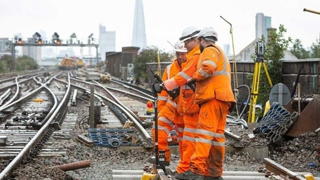
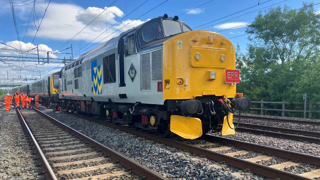
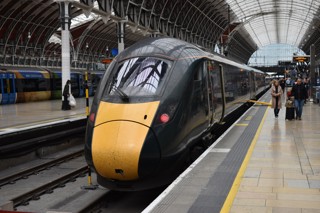
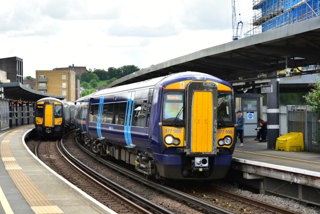
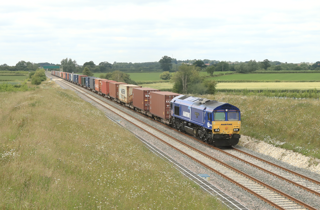










Login to comment
Comments
No comments have been made yet.